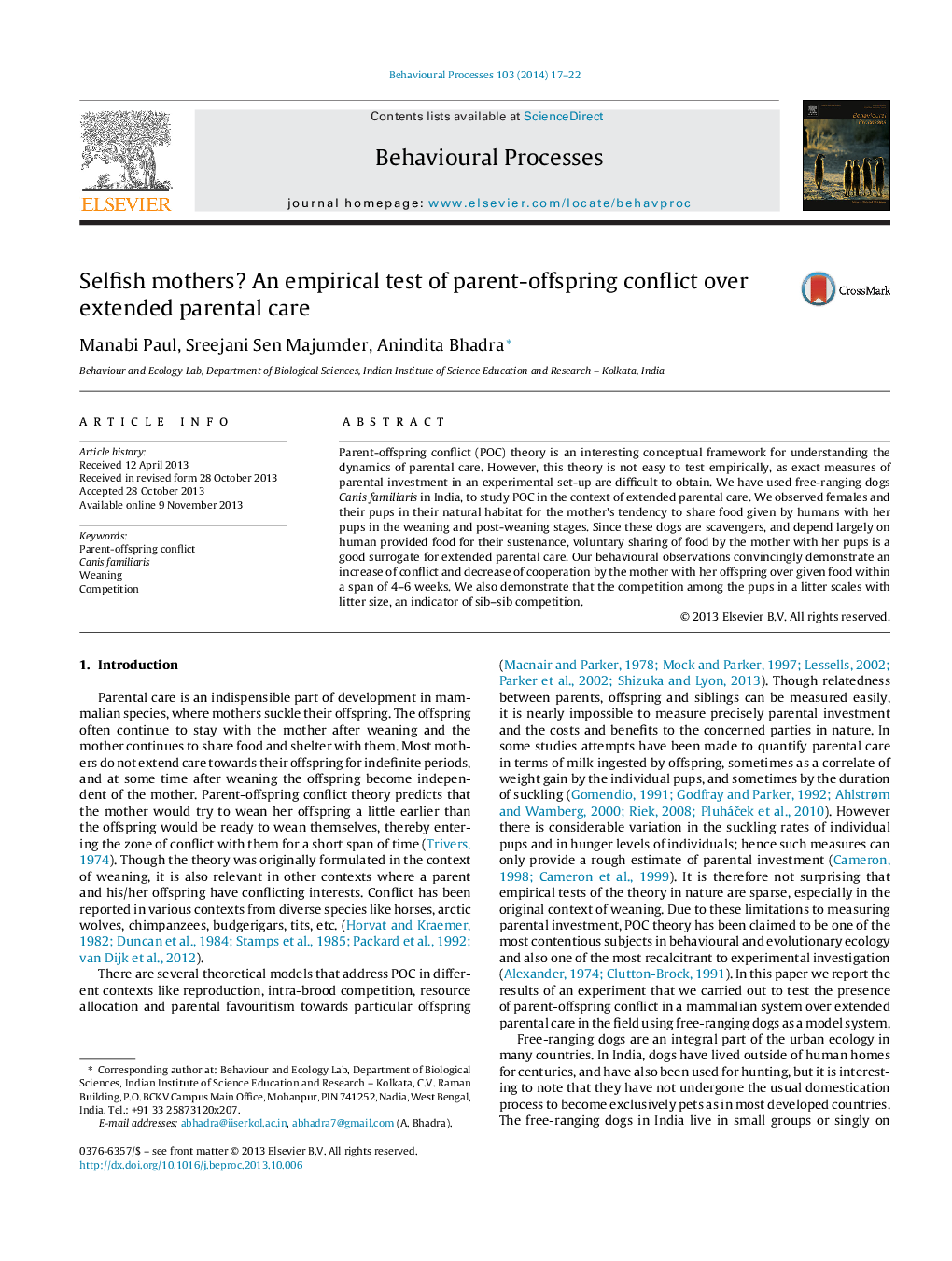| Article ID | Journal | Published Year | Pages | File Type |
|---|---|---|---|---|
| 8497273 | Behavioural Processes | 2014 | 6 Pages |
Abstract
Parent-offspring conflict (POC) theory is an interesting conceptual framework for understanding the dynamics of parental care. However, this theory is not easy to test empirically, as exact measures of parental investment in an experimental set-up are difficult to obtain. We have used free-ranging dogs Canis familiaris in India, to study POC in the context of extended parental care. We observed females and their pups in their natural habitat for the mother's tendency to share food given by humans with her pups in the weaning and post-weaning stages. Since these dogs are scavengers, and depend largely on human provided food for their sustenance, voluntary sharing of food by the mother with her pups is a good surrogate for extended parental care. Our behavioural observations convincingly demonstrate an increase of conflict and decrease of cooperation by the mother with her offspring over given food within a span of 4-6 weeks. We also demonstrate that the competition among the pups in a litter scales with litter size, an indicator of sib-sib competition.
Related Topics
Life Sciences
Agricultural and Biological Sciences
Animal Science and Zoology
Authors
Manabi Paul, Sreejani Sen Majumder, Anindita Bhadra,
